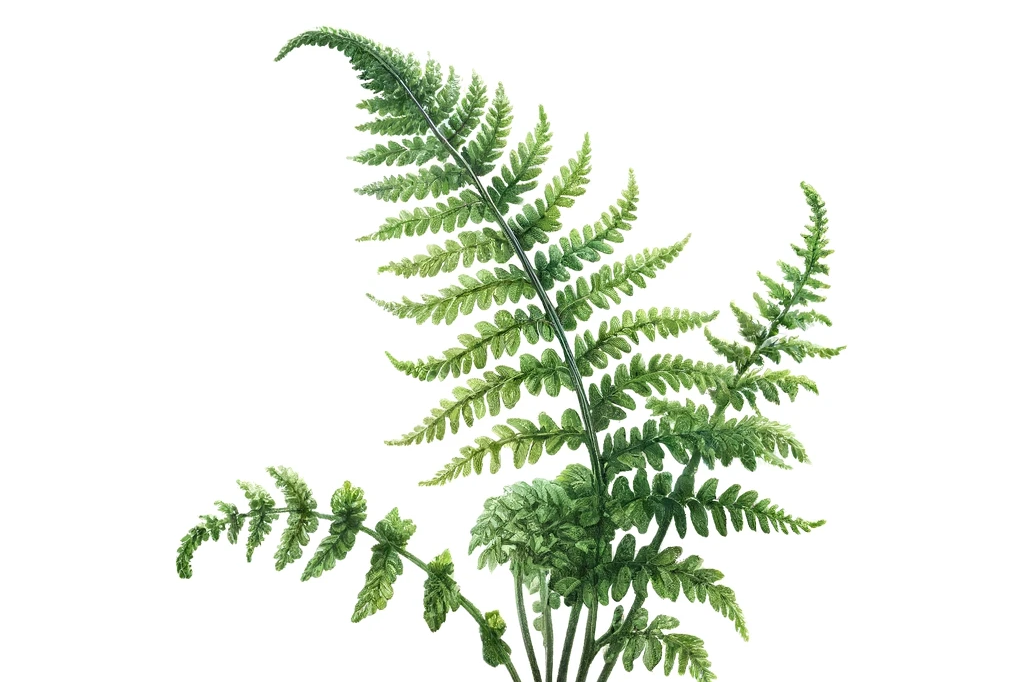Common spotted fern

What is the common spotted fern?
The common spotted fern, known by its scientific name Polypodium vulgare, is a species of fern found in many parts of the world. It is characterized by its long-lived, evergreen fronds, which make an attractive addition to shady gardens and semi-natural landscapes. The fern prefers moist but well-drained soils and can thrive in both deep forests and urban environments.
Characteristics and occurrence
- Foliage: The fronds of the common spotted fern are deeply cleft and have characteristic yellow-brown spore clusters on the underside, the so-called sori.
- Habitat: The fern is extremely adaptable and grows in temperate climates in Europe, Asia and North America.
- Growing conditions: It prefers semi-shady to shady locations and is often found in forests, on rock faces and in native gardens.
Effects on dogs
The good news for dog owners is that the common spotted fern is generally not considered toxic to dogs. There are no known toxic substances in this plant that could lead to symptoms of poisoning in dogs. However, there are some precautions to take to ensure dogs stay healthy and happy.
Benefits
- No toxicity: Common spotted fern poses no known toxicity risk to dogs, making it a safe choice for gardens and green spaces where dogs play and explore.
Disadvantages
- Possible gastrointestinal irritation: Although not toxic, large amounts of ferns eaten can cause gastrointestinal irritation in some dogs, including symptoms such as vomiting or diarrhea.
- Allergic reactions: Some dogs may be sensitive to plants or pollen, which can lead to allergic skin reactions.
Recommendations for dog owners
To ensure that your dog stays safe and healthy, you should make sure that he does not interact excessively with the common spotted fern or other plants. Although the fern has no direct toxicity, it is always better to exercise caution and avoid consuming non-food plants. If you notice any signs of an allergic reaction or gastrointestinal discomfort in your dog, please consult a vet.
The common spotted fern is an attractive and hardy plant that enhances the natural beauty of gardens and woodlands. It generally poses no danger to dogs as long as precautions are taken to avoid excessive consumption and possible allergic reactions. As a responsible dog owner, you can enjoy the beauty of the common spotted fern while ensuring a safe and comfortable environment for your four-legged friend.
If you notice any signs of hypersensitivity or poisoning in your dog, you should see your vet immediately. We are not a substitute for a vet, but we try to be as accurate as possible. Every dog reacts differently and we recommend you get a second opinion or consult your vet if in doubt.
Stay healthy and take good care of your four-legged friend!😊
Similar to Common spotted fern
Ribbed fern belongs to the Blechnaceae family and is characterized by its dark green, shiny leaves, which at first glance might resemble ribs. This perennial plant prefers shady, moist locations and...
The wood fern(Athyrium filix-femina) is a perennial fern found in temperate climate zones worldwide. It is characterized by its tall, feathery leaves, which grow in damp, shady forests, along...
Worm ferns belong to the fern family and include several species known by the genus name Dryopteris. They often grow in moist, shady forests and are known for their dense, green leaves and their...
Bracken fern (Pteridium aquilinum) is a species of fern that grows in various climate zones around the world. This plant is particularly robust and can thrive in a wide range of conditions, from...


